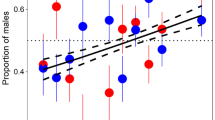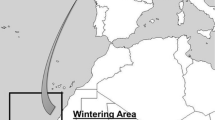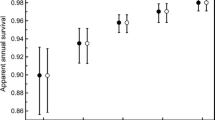Abstract.
We investigated annual adult survival rates of king penguins Aptenodytes patagonicus breeding at South Georgia during 6 years in relation to age/breeding experience, sex, and food availability. During the first 3 years of the study, when food availability was good, survival was 97.7% for experienced breeders, which confirmed the very high survival rates observed in penguins in general. In these years survival did not differ between the sexes, presumably because parental investment is shared equally between the sexes, and the sexual dimorphism is small in king penguins. Survival was lower for young, first-time breeders (83.0%). In experienced birds the annual survival rate decreased to 68–82% following a catastrophic year when food availability was extremely low. We address the question how parents balance their current investment in offspring against their chances to reproduce in the future. We argue that the high mortality rate among breeding individuals after the year of food stress provides support for previous suggestions that the response to increased costs in seabirds might be complex to predict and does not always follow intuitive expectations according to general life-history theory. We also found that females survived significantly less well than males following the bad year. We explain this result as follows: the male-biased sex ratio (56:44) that we observed in our study colony clearly does not result from lower female survival during normal conditions. An already existing skewed sex ratio forces males to delay the onset of breeding because of a lack of breeding partners. This in turn causes breeding females to be, on average, younger and less experienced than males and to have lower survival following a year of food shortage. In this study survival was linked with food availability and we suggest that this was connected to climatic/oceanographic features, such as the position of the Antarctic Polar Front Zone. We could, however, not verify this by anomalies in sea surface temperature data.
Similar content being viewed by others
Author information
Authors and Affiliations
Corresponding author
Additional information
Electronic Publication
Rights and permissions
About this article
Cite this article
Olsson, O., van der Jeugd, H.P. Survival in king penguins Aptenodytes patagonicus: temporal and sex-specific effects of environmental variability. Oecologia 132, 509–516 (2002). https://doi.org/10.1007/s00442-002-0985-6
Received:
Accepted:
Published:
Issue Date:
DOI: https://doi.org/10.1007/s00442-002-0985-6




